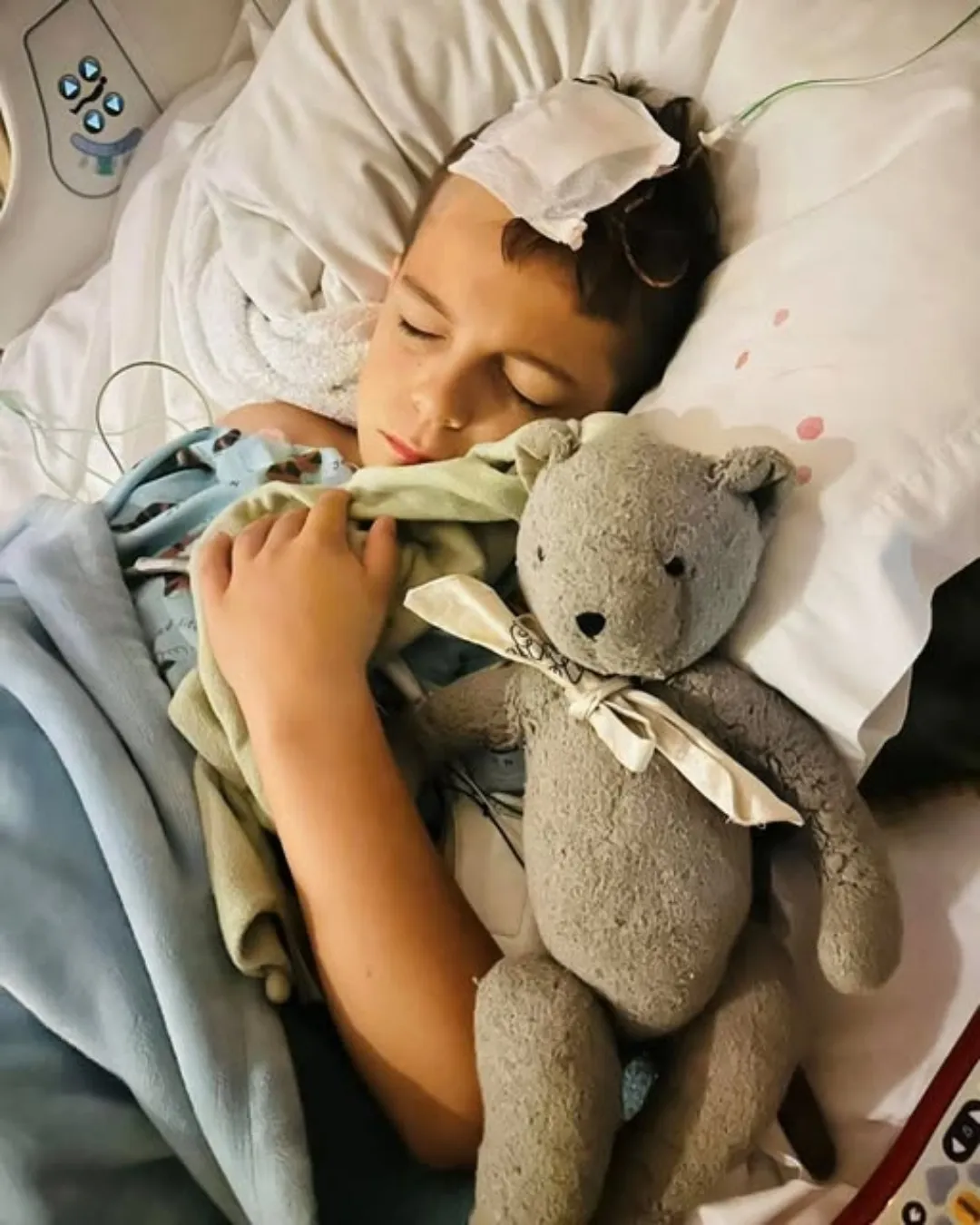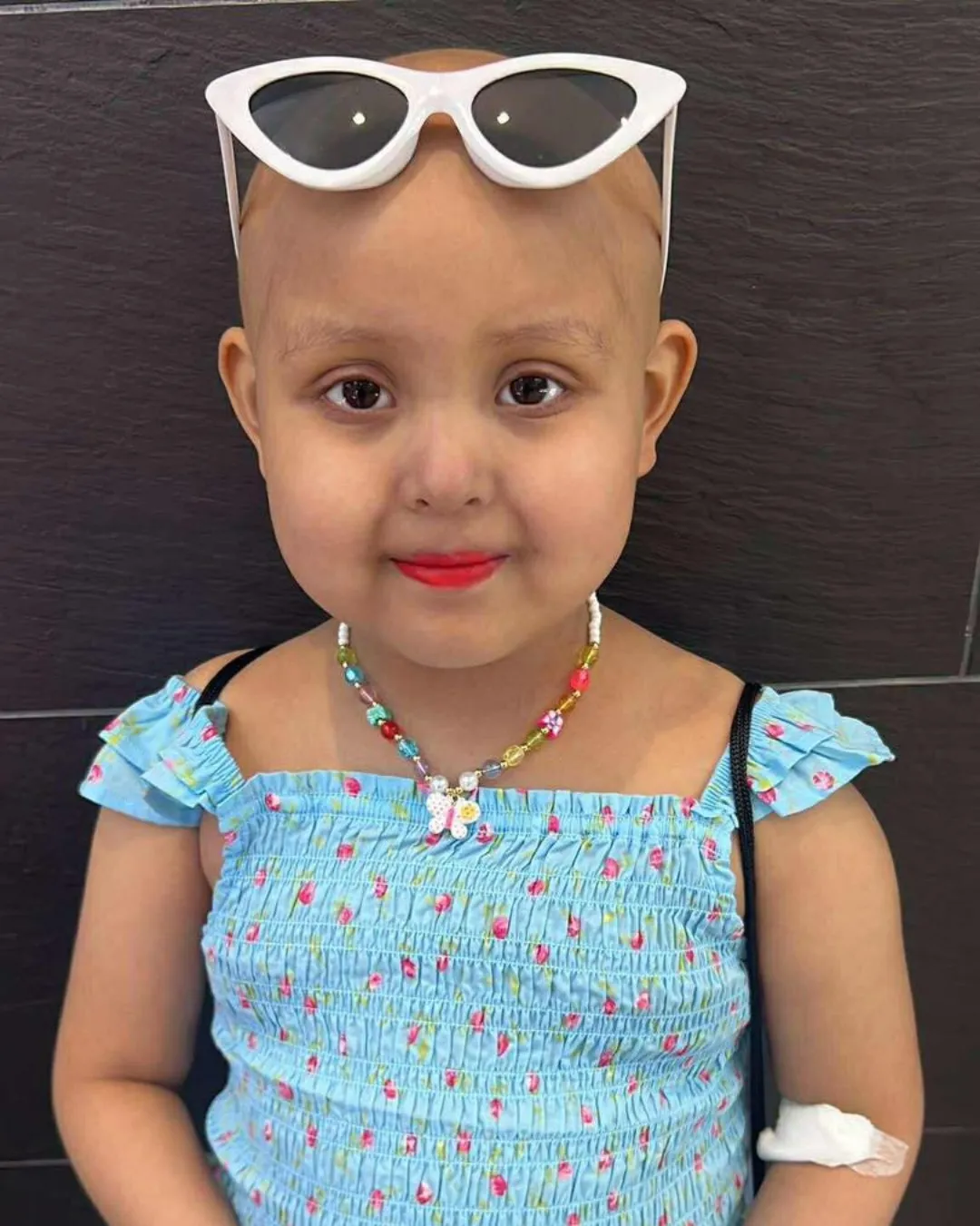Born Into Cruelty, Saved by Love: The Story of Baby Elephant Zhuangzhuang.1029
The story of little Zhuangzhuang begins not with tenderness, but with pain. His very first moments in this world were marked by cruelty rather than comfort.
Most newborn elephants are greeted by the gentle touch of their mothers, nudged upright so they can take their first steps, surrounded by warmth and protection. But when Zhuangzhuang was born, the scene turned into a nightmare. Instead of lowering her trunk in welcome, his mother turned against him. With frightening force, she struck her newborn calf and trampled him, as though rejecting his very existence.
Keepers at the wildlife center rushed in immediately, horrified by what they saw. The calf, barely minutes old, lay on the ground, his tiny body bruised and bloodied, his eyes wide with shock. The staff managed to pull him away just in time, saving his fragile life. At first, they thought it might have been a momentary panic, perhaps confusion in the mother’s instincts. Hoping she would calm down, they tried to reunite the pair.

But the second attempt ended even worse. When Zhuangzhuang was placed near her again, the mother attacked with greater violence, striking and stomping, as though determined to end his life. It became heartbreakingly clear: she would never accept him.
That night, Zhuangzhuang lay alone, separated from the only mother he had ever known. His small body was covered in wounds. But more painful than the bruises was the loneliness. From dusk until deep into the night, he cried—long, pitiful wails that echoed through the center. For five hours straight, his desperate calls filled the darkness, a sound that pierced the hearts of everyone who heard. They were not just cries of hunger or pain, but the grief of a baby stripped of what every living being deserves from the moment of birth: warmth, safety, and love.

The keepers, shaken by his suffering, knew something had to change. One of them made a decision that would alter the course of Zhuangzhuang’s life forever. If the calf could not have a mother by nature, then he would be given one by choice.
The keeper began to care for him as if he were his own child. With gentle hands, he prepared special bottles of milk, feeding the calf through long hours of the day and night. When Zhuangzhuang stirred in fear or whimpered from loneliness, the man was there—stroking his skin, whispering softly to calm him. He stood guard to ensure no harm would come again, a steady presence of reassurance in a world that had seemed so cruel.
Day by day, something extraordinary unfolded. The little elephant, once fragile and trembling, began to grow stronger. His eyes, once filled with despair, began to show light and trust. And between him and his new caretaker, a bond blossomed—something deeper than instinct, built on devotion freely given.

Zhuangzhuang learned to walk steadily, his keeper always by his side. He began to play, to explore, to experience life not as a creature abandoned, but as one who was chosen. For the man who had stepped into the role of his protector, every moment with the calf became a testament to compassion’s power to heal.
Thanks to that unexpected love, Zhuangzhuang not only survived—he thrived. He grew into a symbol of resilience, living proof that even when nature denies us, kindness can restore what was lost.
His story carries a lesson far beyond the elephant sanctuary. Love does not always come from blood. Sometimes, it is found in those who choose to stay when we are most vulnerable, who offer protection and care when the world turns its back. For Zhuangzhuang, true family was not the one he was born to, but the one that chose him, held him, and taught him that even in the face of rejection, love can still prevail.
“Eight-Year-Old Beau Survives Rare Brain Tumor Surgery”.766

Eight-year-old Beau was just like so many other kids his age—full of energy, laughter, and an endless love for baseball. He spent afternoons practicing his swing, playing catch with his dad, and dreaming of one day stepping up to the plate in a big stadium. Life was simple and sweet, until one ordinary day was interrupted by something that would change his family’s world forever.
It started with headaches. At first, Matthew and Leslie, Beau’s parents, thought it might be dehydration, too much running around in the summer heat, or even stress from school. But the headaches grew worse, sharper, and more frequent. The look in Beau’s eyes told them something deeper was wrong. When doctors finally ordered scans, the results brought the kind of news no parent is ever prepared to hear: their son had a rare brain tumor.
Within days, Beau was rushed into surgery. What was supposed to be a regular week of school and baseball practice suddenly became a nine-hour operation that felt like an eternity for his family. In those hours, Matthew and Leslie held hands, prayed without ceasing, and leaned on their faith and their community for strength. Friends brought meals, neighbors sent messages of hope, and strangers shared words of encouragement.

But the doctors were honest—there were no guarantees. They warned that even if the surgery went well, Beau might need to relearn how to walk and talk. Recovery would be long, painful, and uncertain. For parents watching their young son on the operating table, the weight of that truth was almost unbearable.
And yet, they clung to hope.
Day by day, prayer by prayer, Beau’s family chose to believe in light even in the darkest shadows. And then, after weeks of waiting, came the news that lifted a thousand pounds off their hearts: no cancer in his spine. No tumor left in his brain. The surgery had removed it all.
Even more, Beau’s diagnosis carried a far better prognosis than anyone dared to hope for. What once felt like a nightmare suddenly carried a glimmer of possibility, a chance at life, healing, and maybe even baseball again.
Of course, the journey is far from over. Beau still faces therapy, rehabilitation, and days when his little body feels weaker than it should. There are challenges ahead—moments of frustration, exhaustion, and fear. But there are also victories: the first time he stood on his own again, the first time he laughed after surgery, the first time he held his baseball glove, determined that one day he would throw a ball again.
For Matthew and Leslie, Beau’s story is more than just a medical journey—it’s a testament to the power of faith, the strength of community, and the resilience of a child’s spirit. Their boy, who once only dreamed of home runs and bases, has already shown more courage than most people will in a lifetime.
Beau’s story reminds us all that miracles aren’t always sudden flashes of the impossible. Sometimes, they unfold slowly, step by step, in the quiet victories that follow unimaginable fear. And as Beau continues to heal, one thing is certain: his life is already proof that light can break through even the deepest shadows, and hope always finds its way to those who believe.





